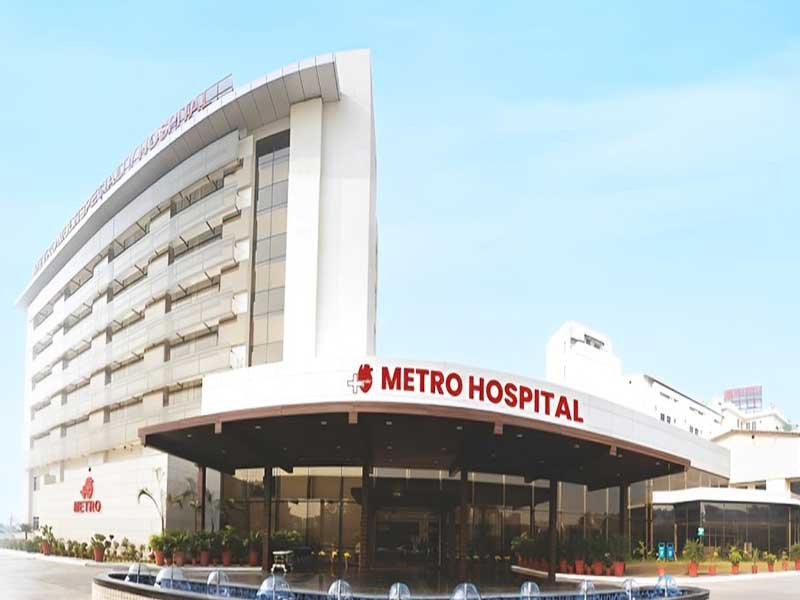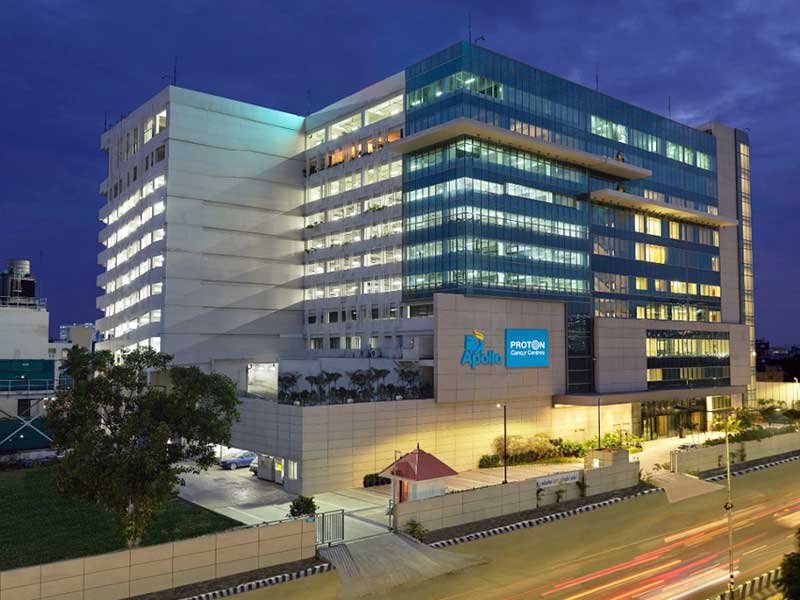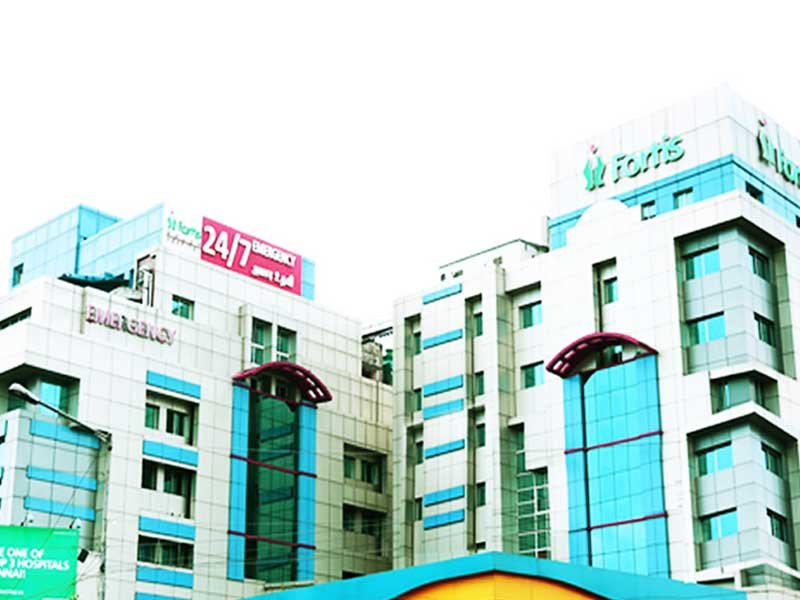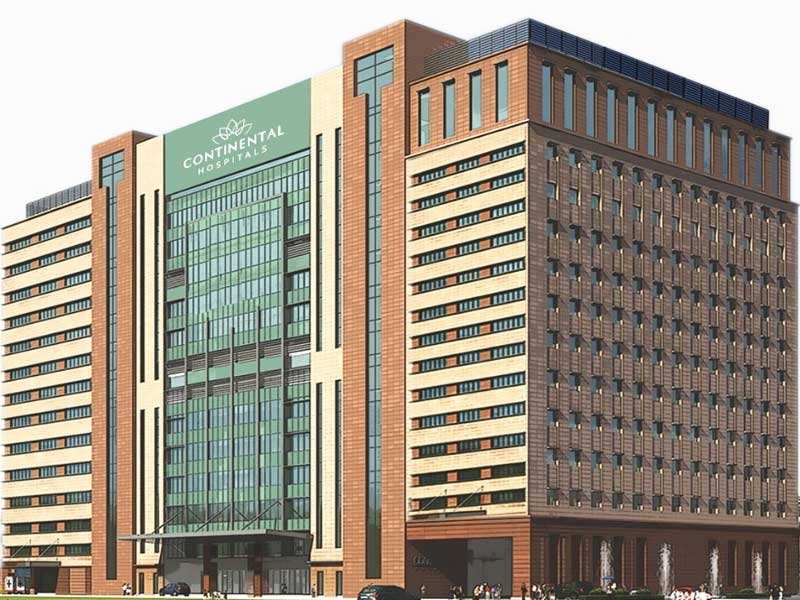Home Treatments Neuro Surgery
Neurosurgery is a medical specialty that aims to provide comprehensive care for patients with severe neurological disorders.
However, it does not only treat brain and spine disorders but also various interventions.
Additionally, patients often face challenges in accessing high-quality neurological care at affordable cost.
Here’s your chance!
India’s leading neurosurgery centers provide world-class treatment for various neurological conditions such as brain tumors, spinal injuries, peripheral nerve disorders, and cerebrovascular issues.
Explore India’s leading neurosurgery centers and get world-class treatment at the lowest cost without compromising quality care.
This medical specialty focuses on diagnosing and treating patients with injuries to or diseases/disorders of the brain, spinal cord, spinal column, and peripheral nerves in all body regions.
A neurosurgeon diagnoses and treats conditions related to your body’s nervous system such as the brain, spine, spinal column, and all the nerves that extend from your spinal cord.
Neurosurgeons often recommend conservative care before surgery. For example, if you have chronic back pain, you may be advised to try anti-inflammatory drugs or physical therapy first yet, if these treatments aren’t effective, surgery might be considered.
India’s neurosurgeons are skilled in various surgical techniques which include:
Common Brain Disorders:
It can be benign or malignant and may originate in the brain or spread from other parts of the body.
The symptoms of brain tumors can be different for each person, but common signs include:
It's a weakened area in the wall of a blood vessel that results in an abnormal widening or ballooning of over 50%, however, it may occur in any blood vessel but is most often seen in an artery rather than a vein.
It appears due to sudden trauma to the head which leads to brain damage, yet symptoms depend on the severity and location of the injury.
It is a neurological disorder that is characterized by sudden seizures and if medications can't manage to control it then surgical options will be recommended.
Common Spine Disorders:
It occurs when a soft inner material pushes against and leaks out of its outer ring which leads to pain, numbness, and weakness in your neck, back, and legs. However, it can heal on its own but if symptoms persist, you need to see a healthcare provider.
It occurs when the space inside the backbone is too narrow, which can put pressure on the spinal cord and the nerves traveling through the spine.
It's a spinal deformity that can cause abnormal sideways curves of the spine often in the shape of C or S, yet it can affect people at any age but mostly in children.
It occurs when cushioning in your spine begins to wear away, however, it is most common in older adults. Moreover, the right treatment option can improve mobility and provide relief.
Neurosurgery has a variety of procedures to help diagnose and treat conditions affecting the nervous system like the brain and spinal cord. Here is a list of some common neurosurgical procedures:
ACDF is a procedure that treats issues in the neck through the front of the throat. This surgery removes pressure on the nerves and spinal cords in the neck and manages certain types of arthritis that can cause significant pain.
TLIF surgery is a type of spinal fusion which is one of the types of lumber interbody fusion surgeries that removes or replaces intervertebral disks in your lower back.
It is a medical procedure that uses a mild electrical current applied to a specific part of the brain. This current stimulates the brain cells in that area, which can help alleviate various medical conditions.
Spine tumor surgery is recommended when neurosurgical methods don’t help to treat benign or malignant tumors to reduce their size and prevent back or neck pain
It stands for ventriculoperitoneal shunts that are primarily used to treat a condition which is called hydrocephalus, which is a condition that occurs when excess cerebrospinal collects in the brain ventricles.
SRS uses many focused radiation beams to treat tumors and other problems related to neck, brain, spine, lungs, liver, parts of the body.
The most frequent neurosurgical treatment for treating herniated discs in the neck is called anterior cervical discectomy. The procedure's objective is to remove the herniated disc in order to relieve pain. When non-surgical pain management methods are ineffective, neurosurgeons frequently suggest this technique.
It is also known as a spinal tap, which is a test that aims to diagnose certain health conditions. It is performed on your lower back in the lumbar region. Additionally, this procedure is performed to collect cerebrospinal fluid to check for infections, inflammation, or other diseases and to measure the pressure of cerebrospinal fluid.
It is a surgical procedure that removes a portion of the skull bone to expose the brain, using specialized tools to remove the section of bone known as the bone flap.
A laminectomy is a surgical procedure that involves the removal of the lamina, the bony arch that covers and supports the back part of the spinal cord in the vertebrae. This procedure helps relieve pressure on the nerves and spinal cord by creating extra space in the spinal canal.
The procedure aims to remove bone from the back of the skull to enlarge the foramen magnum, creating more space for the brain. Additionally, the surgery is intended to manage the progression of symptoms by relieving compression and restoring the normal flow of cerebrospinal fluid.
This procedure helps reduce seizures and improve the quality of life for patients with epilepsy. However, it is most effective when seizures originate from a single brain area. It is not considered a first-line treatment; rather, surgery is an option when at least two antiseizure medications have failed to manage the seizures effectively.
It's a common surgical procedure that helps to drain excess cerebrospinal fluid from your brain which helps to treat hydrocephalus and increase the pressure on your brain from a traumatic injury.
It is also known as microdecompression or micro diskectomy which is a minimally invasive surgical procedure that is performed on patients with herniated lumber disc. In this procedure, the surgeon removes the positions of the herniated disc to relieve pressure on the spinal nerve column.
One of the less complicated (but still rather sophisticated) neurosurgical operations is a lumbar puncture, often known as a spinal tap. It is a diagnostic process used to ascertain whether the patient is displaying symptoms of any central nervous system disorders. Overall, the operation is risk-free when done by a skilled neurologist, and the risks are small.
India has emerged as a global hub for international patients in neurosurgical care by offering services such as diagnosis, treatment, and rehabilitation for various neurological disorders. India’s leading hospitals are equipped with the latest advancements and highly skilled neurosurgeons and staff members who are dedicated to providing quality care.
Scope of Neurosurgical Services:
Indian hospitals offer various neurosurgical procedures which include:
Indian hospitals use advanced techniques for the removal process of both benign and malignant brain tumors.
Minimally invasive approaches are used in Indian hospitals to treat conditions such as herniated discs, spinal stenosis, and spinal tumors.
India offers personalized care for children who require neurosurgery with advanced care and techniques.
India is known for offering quality care and services to international patients seeking neurosurgical care by offering advanced medical facilities, skilled neurosurgeons, and various support services.
Comprehensive International Patient Services:
Benefits for International Patients in India:
India offers advanced neurosurgical procedures which are performed by India’s best neurosurgeons who are dedicated to providing quality care and many are trained internationally.
The cost of neurological procedures in India is affordable as compared to Western countries without compromising the quality of care.
Indian hospitals offer medical services, and logistical and personal needs which ensure personalized care and make it a preferred destination for neurological interventions.
Neurosurgery hospitals in India use advanced treatment methods that ensure high precision of operations and reduce the risk for patients. Here is a list of some modern treatment methods that are used in neurosurgery in India:
This procedure is less damaging to the body compared to open surgery, resulting in less pain, shorter hospital stays, and fewer complications. Laparoscopic surgery is one type of minimally invasive surgery, while robotic surgery is another type.
It's a computer-assisted technology that helps doctors navigate the brain, spinal cord, and nerves during the surgery.
It is also known as electrophysiologic which helps to monitor the electrical activity of the nervous system. Additionally, it is used during surgery to assess the function of the brain, nerves, and spinal cord.
It helps to separate the tumor cells without causing any damage to surrounding areas of the brain and preserve the blood vessels in the tumor. Moreover, this advancement helps doctors to resect the tumor safely and save the patient’s life.
It's a procedure that allows surgeons to see inside a patient’s body during surgery by using an MRI scanner. Moreover, it is often used during brain surgery yet it can also be used to see other parts of the body as well.
This technology provides images of the body, allowing surgeons to synchronize existing scans with new ones. Access to this information enables surgeons to make better decisions during complex surgeries.
It is a non-invasive technique that accurately measures tissue stiffness and reliably assesses both global and regional stiffness in the brain in vivo. However, brain stiffness is sensitive to various physiological and pathological processes.
It's a non-invasive painless system form of radiation that helps to offer accurate and effective treatment for tumors anywhere in the body. It uses a combination of computers, image-guided cameras, and robotic technology that directly targets the tumor cells.
Gamma knife surgery is a type of radiation therapy that uses computer-guided planning to treat brain and upper spine conditions and tumors. It delivers highly focused energy beams to a specific area of the treatment and thus type of radiation also reduces the risk of damaging surrounding tissues.
This is a minimally invasive approach that offers various benefits as compared to traditional open surgery. It offers great precision and control to the surgeon which makes it a safe and effective surgical outcome.
It's a surgical technique that involves using a long thin tube called an endoscope that helps the doctor to diagnose and treat conditions involving the brain, spine, and other parts of the nervous system.
Your neurosurgeon will also ask about your family's medical history due to the fact that some health disorders run in families. Your current medications and lifestyle choices will also be questioned.
A thorough physical examination is crucial to determining a diagnosis. Immediately following your neurosurgery and possibly for a few weeks afterward, you will feel exhausted and less steady.
Brain, spine, and nerve problems are dealt with by neurosurgeons through prevention, diagnosis, and treatment. Additionally, they manage and treat illnesses that have an impact on blood flow to the brain. Additionally to performing procedures, they could take part in a patient's post-treatment rehabilitation.

GI Surgeon, GI Oncologist and Bariatric Surgeon
35+ Years of Experience

Surgical Oncologist & Robotic Surgeon
20+ Years of Experience

Beds: 539
New Delhi

Beds: 230
New Delhi

Beds: 710
New Delhi

Beds: 650
New Delhi

Beds: 191
New Delhi

Beds: 310
New Delhi

Beds: 299
Gurugram

Beds: 380
New Delhi

Beds: 402
New Delhi

Beds: 1300+
Gurugram

Beds: 1000
New Delhi

Beds: 450
Faridabad

Beds: 675
New Delhi

Beds: 500
New Delhi

Beds: 400+
Faridabad

Beds: 106
New Delhi

Beds: 495
New Delhi

Beds: 104
Gurugram

Beds: 250
Gurugram

Beds: 300
Gurugram

Beds: 200
New Delhi

Beds: 162
New Delhi

Beds: 400+
New Delhi

Beds: 380
Faridabad

Beds: 262
New Delhi

Beds: 325
Faridabad

Beds: 550
Gurugram

Beds: 2600
Faridabad

Beds: 400
Noida

Beds: 450
Chennai

Beds: 560
Chennai

Beds: 400
Chennai

Beds: 300
Chennai

Beds: 150
Chennai

Beds:
Chennai

Beds: 300
Chennai

Beds: 180
Chennai

Beds: 200
Chennai

Beds: 750
Mumbai

Beds: 2000
Hyderabad

Beds: 1000
Chennai

Beds: 360
Chennai

Beds: 750
Chennai

Beds: 350
Mumbai

Beds: 345
Mumbai

Beds: 300
Mumbai

Beds: 350
Mumbai

Beds: 350
Mumbai

Beds: 310
Mumbai

Beds: 257
Mumbai

Beds: 600
Bengaluru

Beds: 284
Bengaluru

Beds: 450
Bengaluru
.jpg)
Beds: 500
Bengaluru

Beds: 250
Bengaluru

Beds: 80
Bengaluru

Beds: 284
Bengaluru

Beds: 350
Ahmedabad

Beds: 289
Ahmedabad

Beds: 210
Ahmedabad

Beds:
Ahmedabad

Beds: 550
Ahmedabad

Beds: 1000
Hyderabad

Beds: 550
Hyderabad

Beds: 150
Hyderabad

Beds: 400
Hyderabad

Beds: 435
Hyderabad

Beds: 585
Hyderabad

Beds: 600
Pune

Beds: 500
Pune

Beds: 350
Pune

Beds:
Pune

Beds: 120
Pune

Beds: 100
Pune

Beds: 300
Kolkata

Beds: 700
Kolkata

Beds: 316
Kolkata

Beds: 440
Kolkata

Beds: 200
Kolkata

Beds: 1300
Kochi

Beds: 600
Calicut

Beds: 670
Kochi

Beds: 510
Kochi

Beds:
Kochi

Beds: 20
Chennai

Beds: 450
Noida

Beds: 150
Hyderabad

Beds: 500
Mumbai

Beds: 22
Mumbai
Our care team can help you.
